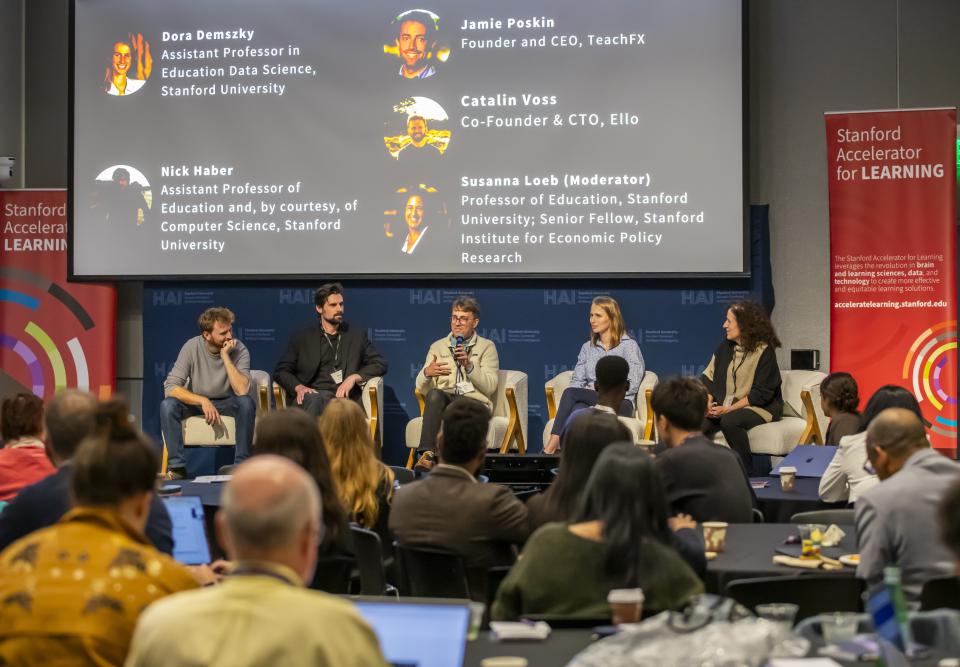The third Stanford AI+Education Summit, held on February 25, 2025, served as a crucial platform for the convergence of researchers, educators, and policymakers. The summit focused on the transformative impact of artificial intelligence (AI) on teaching and learning. As AI technologies continue to permeate educational environments, the summit underscored the pressing need for ethical and equitable integration of these tools.
AI Literacy and Human-Centered Design
One of the primary topics of discussion was the importance of AI literacy. As AI becomes more ingrained in educational frameworks, equipping educators and students with the necessary skills to understand and utilize AI responsibly is imperative. The summit emphasized a human-centered approach to AI design, ensuring that these technologies enhance rather than hinder the educational experience.
Experts at the summit stressed the importance of collaboration among various stakeholders. "Effective AI integration in education demands a concerted effort from teachers, students, and policymakers," noted Dr. Emily Chen, a leading AI ethics researcher. "We must work together to create frameworks that prioritize student welfare and foster an environment of trust and transparency."
Privacy Concerns and Ethical Considerations
Privacy concerns were another critical area of focus. With AI systems collecting vast amounts of data, the potential for misuse or breaches is significant. The summit called for robust regulatory frameworks to protect student data and ensure that AI applications in education adhere to the highest ethical standards.
The discussions highlighted the dual-edged nature of AI in education. While AI offers unprecedented opportunities for personalized learning and administrative efficiency, it also poses risks that must be carefully managed. The potential for AI to exacerbate existing inequalities in education was a particular concern, underscoring the need for policies that promote inclusivity and fairness.
Collaborative Efforts for a Sustainable Future
The summit concluded with a call to action for all stakeholders involved in the educational sector. The consensus was clear: the integration of AI in education should not be left to chance. Instead, it requires intentional planning, continuous dialogue, and a commitment to ethical principles to ensure that these technologies serve the best interests of all students.
Originally published at https://hai.stanford.edu/news/aieducation-summit-the-future-is-already-here
ResearchWize Editorial Insight
AI in education is not just the future; it's the present, reshaping how we learn and teach. The Stanford AI+Education Summit highlights this seismic shift, stressing the need for ethical, equitable integration of AI in classrooms.
Why does this matter for students and researchers? First, AI literacy is becoming as crucial as traditional literacy. Understanding AI's role and potential in education empowers students to navigate and leverage these tools effectively. For researchers, this opens new avenues for exploring AI's impact on learning outcomes and educational equity.
Privacy and ethics are at the forefront. As AI collects massive data, the risk of misuse looms large. Researchers must scrutinize these systems to ensure they protect student data and promote fairness. This isn't just a technical challenge but a societal one, demanding robust policies and ethical guidelines.
The summit's call for collaboration highlights a systemic risk: without coordinated efforts, AI could widen educational disparities. Researchers and policymakers must work together to develop frameworks that prioritize inclusivity and transparency.
The big question: How do we balance AI's potential benefits with its risks to create a sustainable, equitable educational future? This is the challenge that students, educators, and researchers must tackle head-on.
Looking Ahead
The integration of AI into education is not just a possibility; it is an inevitability. The question is not whether AI will change education, but how, and who will control this transformation. As we stand on the brink of this educational revolution, we must confront the uncomfortable truths and potential pitfalls that come with it.
1. Curriculum Overhaul AI literacy must become a foundational component of every educational curriculum. This is non-negotiable. If students are to navigate a world increasingly shaped by AI, they need more than just a passing familiarity with these technologies. Will our educational systems adapt quickly enough to provide this? Or will they lag, leaving students ill-prepared for the realities of a digital future?
2. Teacher Training and Empowerment Educators are the linchpin in this transformation. We must invest in comprehensive training programs that empower teachers to integrate AI tools effectively and ethically. But are current teacher training programs equipped to handle this demand? And if not, what are the consequences of unleashing unprepared educators into AI-enhanced classrooms?
3. Regulatory Frameworks The data privacy concerns raised at the Stanford summit cannot be overstated. Robust regulatory frameworks are urgently needed to protect student data and ensure ethical AI deployment. What happens if regulators fall behind? Who will hold tech companies accountable, and at what cost to student privacy and autonomy?
4. Equity and Access AI has the potential to either bridge or widen the educational divide. We must prioritize policies that ensure equal access to AI technologies for all students, regardless of socio-economic background. Can we create a system that serves everyone, or will AI become yet another tool that exacerbates existing inequalities?
5. Continuous Dialogue and Adaptation The pace of AI development demands continuous dialogue among educators, technologists, and policymakers. This is not a one-time conversation but an ongoing process of adaptation and reevaluation. Are we ready to commit to this level of engagement, or will complacency lead to outdated and ineffective educational practices?
Originally reported by https://hai.stanford.edu/news/aieducation-summit-the-future-is-already-here.
Related Articles
- President Trump signs executive order boosting AI in K-12 schools
- Americans largely foresee AI having negative effects on news, journalists
- Teens are embracing AI — but largely not for cheating, survey finds
📌 Take the Next Step with ResearchWize
Want to supercharge your studying with AI? Install the ResearchWize browser extension today and unlock powerful tools for summaries, citations, and research organization.
Not sure yet? Learn more about how ResearchWize helps students succeed.

